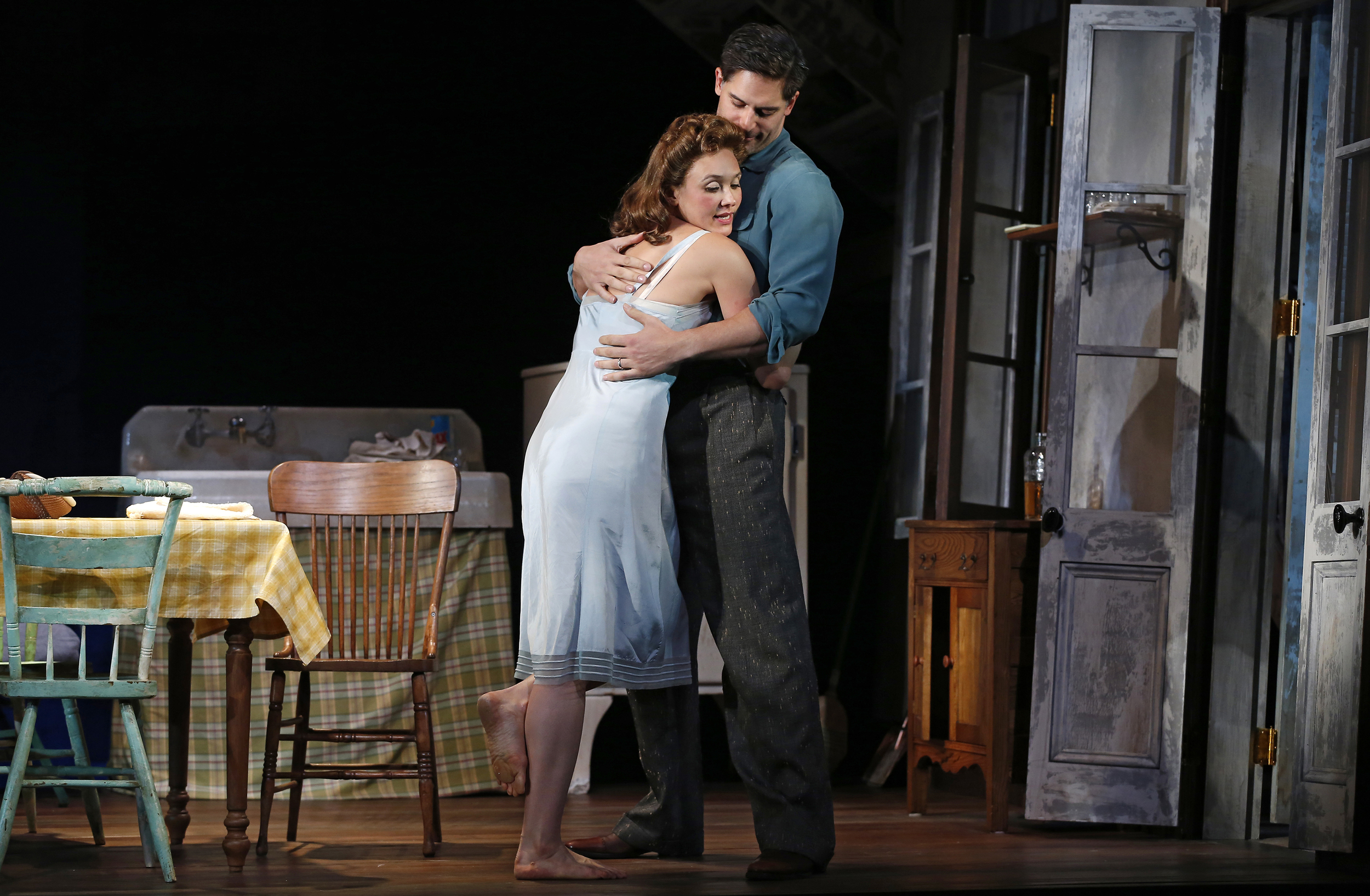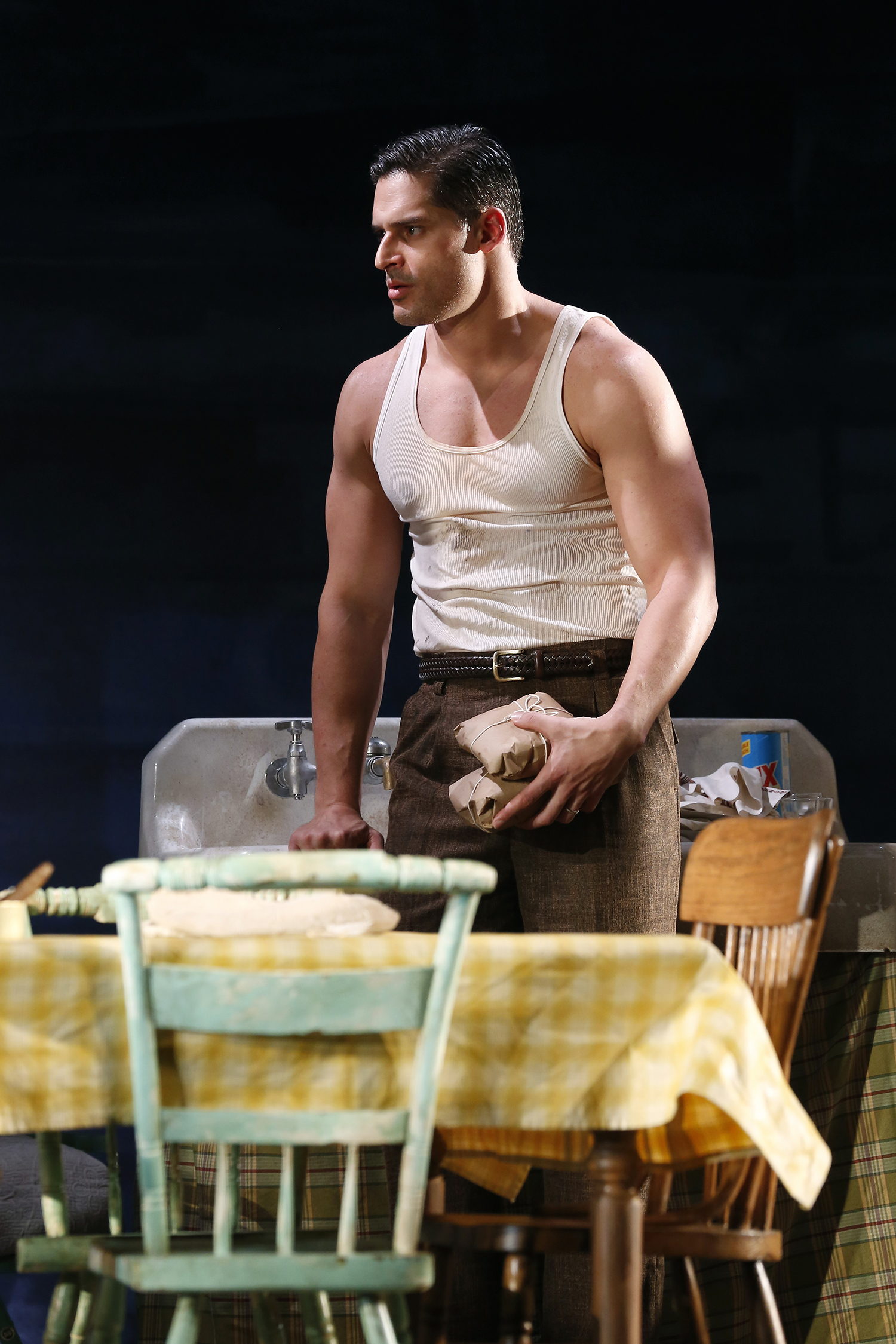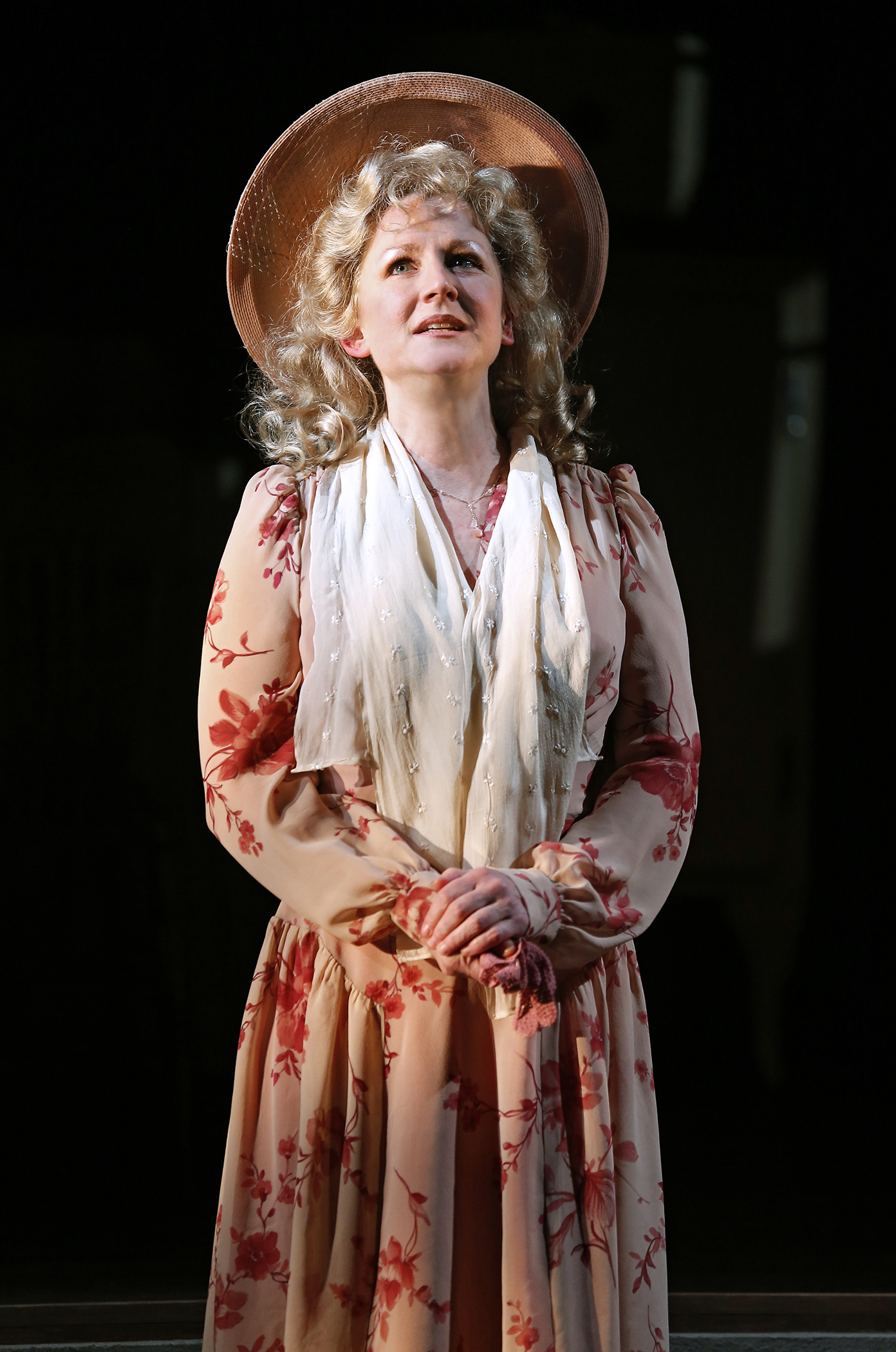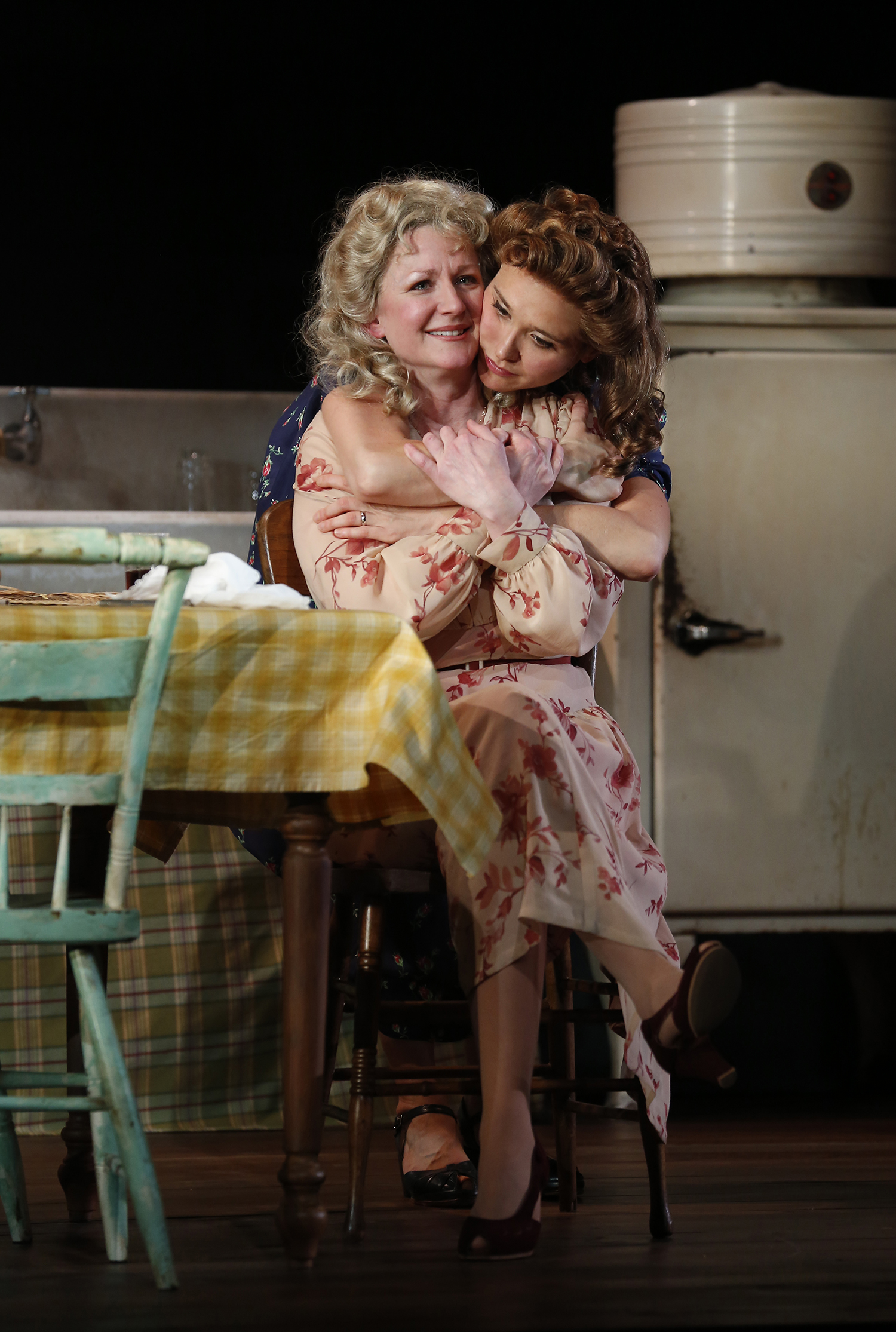Review of Arcadia at Yale Rep Tom Stoppard’s Arcadia, now playing at the Yale Repertory Theatre, is a magnificent play, a comedy of manners set in two very different eras—the early 19th century, aka the Romantic era, and the late 20th century, aka the Scientific era—while all the action occurs in the same drawing room on the estate of Lady Croom in Sidley Park, Derbyshire. The play is a mind-bending disquisition on the place of passion in the rational universe, and the place of volition in the face of chaos theory.
In 1809, we meet Septimus Hodge (Tom Pecinka), tutor to precocious budding teen, Thomasina Coverly (Rebekah Brockman), daughter of Lady Croom. Hodge, who has been seen in flagrante delecto with the very available Mrs. Chater (never seen); Hodge repulses a challenge to a duel by her irate husband, the poetaster Ezra Chater (Jonathan Spivey), by flagrantly flattering his execrable poem The Couch of Eros. Chater chooses not to kill what he believes to be a favorable critical opinion. Very droll, the 19th century scenes also feature asides on the changeover from the rational aesthetic of the Enlightenment to the romantic aesthetic of the Gothic, as a landscape architect, Richard Noakes (Julian Gamble) is on hand to transform the Croom estate into a carefully designed “wilderness” with faux ruins and hermitage sans hermit. Wildean paradoxes and witty sallies abound—such as play with the phrase “carnal embrace”—and interesting motifs begin to emerge, such as Thomasina’s interest not only in what human bodies get up to when in congress, but also her anachronistic sense of how math helps us foresee the future—in thermodynamic terms.
Indeed, Stoppard’s play might be said to take the idea “anachronism” and twist it about so that, by play’s end, we experience a telling scene of synchronicity across the centuries in a very satisfying “dance to the music of time.” Time, we might say, while it flows in one direction, does sometimes snag on certain interesting eddies as Arcadia brings to light.
The play fleshes out our sense of the stakes of the 19th century segments by introducing us, in present day, to two writers: Hannah Jarvis (René Augesen) and Bernard Nightingale (Stephen Barker Turner)—she a best-selling writer of romantic nonfiction, he a scholar of the romantic period out to prove a hunch. She has written a book on Caroline Lamb that Bernard eviscerated, and they both converge on Sidley Park for information—she on the mysterious hermit who lived in the hermitage, he to prove that Byron had visited there, cuckolded Chater, and killed him in a duel. Much of the humor of their exchanges has to do with the oneupmanship of scholarship, the high-handedness of academic debate, and, of course, the shakiness of the grounds of Nightingale’s every leap of faith. History, Stoppard demonstrates deliciously, is hardly an exact science.
Running about this central battle of wits—Augesen plays Hannah with the forthright manner of a woman long since done kowtowing to men in the interest of seduction, and Turner’s Bernard is an over-dressed coxcomb of limited scruples and vaunting ambition—are various Coverleys, most notably Valentine Coverly (Max Gordon Moore), a math grad student in the present day. Moore is indispensable in his grasp of how to make Valentine’s nerdy obsessiveness articulate and interesting; he holds down an important expository role with depth and conviction, giving us the ramifications of Thomasina’s scribbles (she prefigures fractals) and their thermodynamic applications. Valentine is also a possible romantic attachment for Hannah while Chloë Coverly (Annelise Lawson)—a “pert thing” as they say—makes a play for Bernard. The latter day Coverleys, in other words, are all about “carnal embrace,” while Val also tries to apply an algorithm to grouse populations on the estate (the hunting diaries are important) and Chloë wonders if sexual attraction is the important deviation that throws off determinism, if, in other words, eros promotes errors. There is also the “red herring”—if you like—of Gus Coverly (Bradley James Tejeda), the mute (since age 5), younger brother of Val and Chloë, who develops a crush on Hannah, and his doppelgänger in the past (also Tejeda): Augustus, a self-possessed young lord dismissive of his tutor.
As Hodge, Pecinka displays the unflappable hauteur of the underling who is, in many ways, the most masterful figure. In Part Two, the 19th century action moves up a few years to 1812 and the relation between Hodge and his prime pupil threatens to become a conflagration that is made literal—et in Arcadia ego. Brockman plays precocious teen with a feel for Thomasina’s vulnerability and sagacity. A certain stiffness, though, makes the characters’ attraction not as warm or charming as it might be.
And that applies to the production in general: it is superbly mounted on an airy set, with the usual technical efficiency of the Rep and lovely costumes—Felicity Jones as Lady Croom is particularly well-gowned, as is Thomasina in Austenian aplomb, and Bernard’s suits are always attention-grabbing, while a fancy-dress party late in the play gives Moore an occasion to don 19th century waistcoat, tights, and boots, all of which seems to suit Valentine perfectly. But there’s something a bit “technical” about the presentation as well, as though the cast has not yet found the rhythms to make Stoppard’s highly literate script sing. A certain fussiness of diction rather than the pleasure of the text intrudes, though Pecinka and Jones both deliver great parting shots on their way, respectively, out the door, Turner makes academic posturing and diatribe a self-satisfied skill, and Augesen is a strong if not entirely sympathetic Hannah, while Spivey effectively turns on a dime as Chater’s bluster turns to blushing.
There is also fun with a tortoise—called Lightning—and other assorted props that remain in view on the large handsome table, regardless of era, and with a host of questions that must be resolved: was Chater killed? Who was the hermit? What do the missives in the copy of The Couch of Eros in Byron’s possession mean? Is Bernard right about anything? And if you can draw a leaf or predict grouse with an iterated algorithm, can you also plot the as-yet-unlived course of our lives? And can we ever know a past we never saw, as time moves in one direction? Doesn’t it?
Stoppard’s busy, astounding, thought-provoking, and entertaining Arcadia, as directed by James Bundy, is a handsome production, well-cast and well-staged and quite correct, though, in effect, more rational than sublime.
Arcadia By Tom Stoppard Directed by James Bundy
Composer: Matthew Suttor; Choreographer: Emily Coates; Scenic Designer: Adrian Martinez Frausto; Costume Designer: Grier Coleman; Lighting Designer: Caitlin Smith Rapoport; Sound Designer: Tyler Kieffer; Dialect Coach: Stephen Gabis; Production Dramaturg: Rachel Carpman; Casting Director: Tara Rubin Casting; Stage Manager: James Mountcastle; Photos: Joan Marcus
Yale Repertory Theatre October 3-25, 2014













